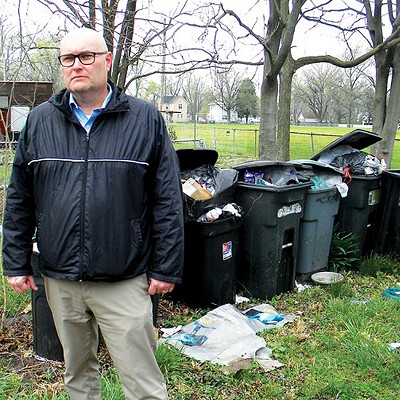The current national discussion on policing in America has appropriately focused on systemic racism and brutality.
However, it has left out one key issue to which almost everyone appears blind: We are not going to get the quality policing we want until we have a concern for officer wellness in the area of mental health.
Policing is stressful. The average male police officer's life expectancy is 21.9 years shorter than the average American.
While the rate for dying in the line of duty is about 9.3 police officers per 100,000 per year, the even more disturbing statistic is that the suicide rate of police officers is about 22 per 100,000.
Yes, police officers are more likely to die by their own hand.
One of the major issues for this disturbing statistic is the failure of police departments to recognize and treat post-traumatic stress disorder (PTSD) in their officers. Various studies have put the incidence of PTSD in police in the range of 4-18%. But some studies have placed sub-syndromal PTSD symptoms in up to 34% of police.
Many of the public don't realize how often police are placed in life-threatening situations. A 2015 study of police in rural and small town settings found 42.6% were threatened with a gun at least once and 45.5% reported being threatened with other weapons. There were 29.7% who reported feeling trapped in a life-threatening situation.
Thus a career in policing is well-suited to developing PTSD. The person with PTSD has intrusive, involuntary and recurrent memories of traumatic events (flashbacks). The individual may have trouble recalling important aspects of the traumatic event and develop negative beliefs about life in general with persistent negative emotions.
Another significant symptom is arousal and reactivity resulting in generally irritable behavior with angry outbursts that can be reckless and self-destructive. Finally, there is a strong tendency to avoid reminders of traumatic events that can serve as triggers, including talking about their current feelings.
Failing to identify and provide effective treatment for PTSD in officers can set the stage for bad events with the public.
Consider for a moment an officer with PTSD resulting from two life-threatening situations. That officer is now dealing with a member of the public who is being mildly disruptive.
The event location is close to the location of the first traumatic event and the disruptive individual is dressed like the individual in the second traumatic event. Surrounded by multiple triggers, the officer with PTSD may begin having flashbacks and respond to the situation based on the PTSD and not the real situation they are facing.
Why don't police with PTSD get identified? First, people with PTSD are reluctant to discuss their symptoms and in some police departments there is a culture that people should tough it out. But there are also consequences of acknowledging PTSD symptoms.
Many jurisdictions require an annual fitness-for-duty evaluation (FDE). If you are found not fit for duty because of psychiatric symptoms, you cannot work until the symptoms resolve. Yet in many jurisdictions, failing a FDE does not automatically qualify the officer for disability benefits. In such a case the officer may not be able to work and struggle without income while trying to get disability benefits.
All police departments need more funding (either from internal budget transfers or new funding) to provide routine preventative mental health services, to develop a culture where getting mental health treatment is promoted and to enact rules so a negative FDE for PTSD means automatic qualification for disability and treatment
So as we discuss how to deal with systemic racism in our police departments, I hope we will also talk about how to make treatment available to those police who went into service with good intentions and were traumatized while serving.
To the extent we fail to deal with this issue, our efforts at community policing reform will fail.
Dr. Soltys of Springfield is a retired psychiatrist and former chair of psychiatry at SIU School of Medicine. He still teaches medical students at SIU on a volunteer basis.





















